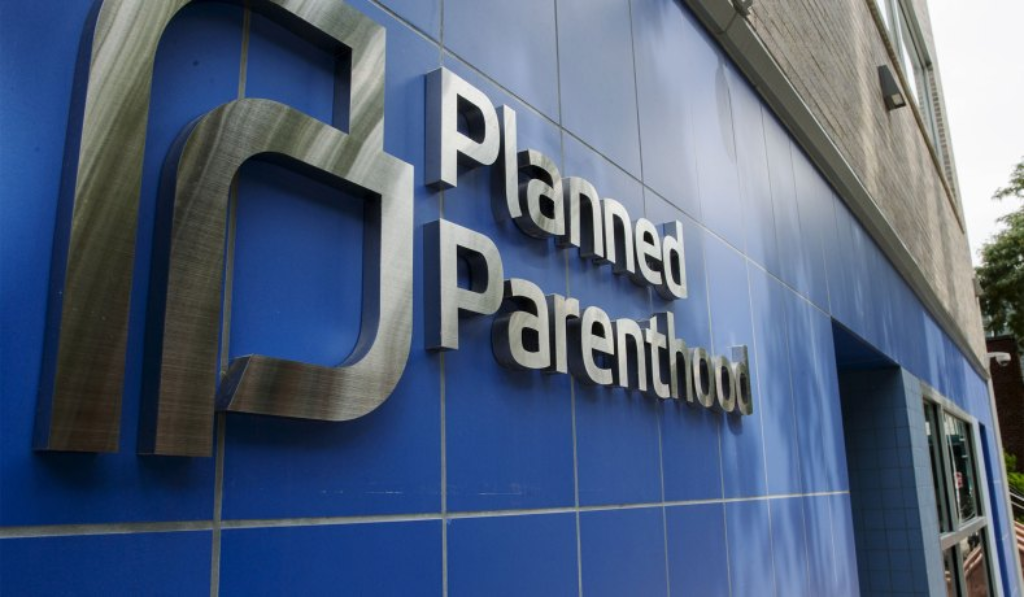Supreme Court Hands Planned Parenthood A Win In Medicaid Funding Case
The Supreme Court declined to hear a case involving state laws banning Medicaid reimbursement for non-abortion services provided by Planned Parenthood.

The Supreme Court declined this morning to review decisions blocking laws from Kansas and Louisiana that attempted to bar Planned Parenthood from receiving Medicaid funds for non-abortion medical services:
The U.S. Supreme Court declined Monday to review lower court decisions that blocked efforts in two states to cut off public funding for Planned Parenthood, refusing for now to get involved in state battles over abortion rights.
The cases did not touch on abortion itself, but three justices who said the court should have accepted the cases said that was the reason the court declined to get involved.
“What explains the court’s refusal to do its job here? I suspect it has something to do with the fact that some respondents in these cases are named ‘Planned Parenthood,’ ” Justice Clarence Thomas wrote.
The court’s action showed a split among the panel’s conservatives, and might indicate a reluctance by the majority to take on controversial cases at a time when the Supreme Court is in the political spotlight.
Thomas was joined in his opinion by fellow conservative justices Samuel A. Alito Jr. and Neil M. Gorsuch.
But it takes four justices to accept a case, and two other court conservatives, Chief Justice John G. Roberts Jr. and Justice Brett M. Kavanaugh, did not join Thomas’s opinion.
The court has been considering whether to accept the cases since September.
The issue has to do with whether individual Medicaid recipients who receive services from providers such as Planned Parenthood have a right to challenge a state’s decision to cut off funding to the providers.
Five regional courts of appeal have said they do, while one has said they do not. That is the kind of split that normally prompts the Supreme Court to act, and Thomas said that is what the court should have done.
“It is true that these particular cases arose after several states alleged that Planned Parenthood affiliates had, among other things, engaged in ‘the illegal sale of fetal organs’ and ‘fraudulent billing practices,’ and thus removed Planned Parenthood as a state Medicaid provider,” Thomas wrote.
“But these cases are not about abortion rights. They are about private rights of action under the Medicaid Act. Resolving the question presented here would not even affect Planned Parenthood’s ability to challenge the states’ decisions.”
One case was from Kansas, the other from Louisiana.
Planned Parenthood had told the high court that it was not necessary to review the lower court decisions at this time.
“Every person has a fundamental right to health care, no matter who they are, where they live, or how much they earn,” Leana Wen, president of the Planned Parenthood Federation of America, said in a statement.
“As a doctor, I have seen what’s at stake when people cannot access the care they need, and when politics gets in the way of people making their own health care choices. We won’t stop fighting for every patient who relies on Planned Parenthood for lifesaving, life-changing care.”
More from The New York Times:
WASHINGTON — The Supreme Court on Monday refused to hear two cases arising from efforts by states to bar Planned Parenthood clinics from the Medicaid program, drawing a rebuke from the court’s three most conservative justices and opening a window onto the court’s internal dynamics.
It takes four votes to add a case to the court’s docket, but the cases attracted only three — Justices Clarence Thomas, Samuel A. Alito Jr. and Neil M. Gorsuch. Neither of the court’s other conservatives — Chief Justice John G. Roberts Jr. and Justice Brett M. Kavanaugh — proved willing to supply a fourth vote.
That split on the right side of the court is evidence that Chief Justice Roberts is trying to keep the court out of major controversies and that Justice Kavanaugh, who joined the court in October after a fierce confirmation battle, is, for now at least, following his lead.
In his dissent, Justice Thomas questioned his colleagues’ motives. They had voted to duck the cases, he wrote, for a bad reason.
“What explains the court’s refusal to do its job here?” Justice Thomas wrote. “I suspect it has something to do with the fact that some respondents in these cases are named ‘Planned Parenthood.'”
But, he said, the cases are not about abortion rights, but only about whether individuals may sue to challenge decisions by states to withdraw funding from Planned Parenthood clinics.
“Resolving the question presented here would not even affect Planned Parenthood’s ability to challenge the states’ decisions; it concerns only the rights of individual Medicaid patients to bring their own suits,” Justice Thomas wrote.
That issue warranted the court’s attention, Justice Thomas wrote.
“This question is important and recurring,” he wrote. “Around 70 million Americans are on Medicaid, and the question presented directly affects their rights. If the majority of the courts of appeals are correct, then Medicaid patients could sue when, for example, a state removes their doctor as a Medicaid provider or inadequately reimburses their provider.”
Though the general legal question of who may challenge funding decisions has no particular political implications, recent cases have involved efforts by state officials opposed to abortion to cut off payments to Planned Parenthood clinics.
In letting stand two decisions allowing patients to challenge state funding determinations, the Supreme Court effectively sided with Planned Parenthood.
In the cases the justices turned away on Monday, from Kansas and Louisiana, appeals courts acknowledged that states have broad power to decide which health care providers may supply services for the program. But that power has limits, the United States Court of Appeals for the 10th Circuit, in Denver, ruled in the case from Kansas, Andersen v. Planned Parenthood of Kansas, No. 17-1340.
“States may not terminate providers from their Medicaid program for any reason they see fit, especially when that reason is unrelated to the provider’s competence and the quality of the health care it provides,” Judge Gregory A. Phillips wrote for a divided three-judge panel.
Five of the six appeals courts that have considered the issue sided with the clinics. The exception is the Eighth Circuit, in St. Louis, which last year allowed Arkansas to withdraw Medicaid financing for Planned Parenthood. Disagreement among federal appeals courts often prompts Supreme Court review.
Lawyers for Kansas had urged the justices to resolve the dispute.
“More than 70 million people — one out of every five Americans — are enrolled in Medicaid,” they told the Supreme Court. “The 10th Circuit’s decision permits any one of them to challenge a termination decision of an individual provider in federal court.”
Planned Parenthood’s local affiliates responded that Congress had meant to allow suits from patients in addition to federal supervision. The groups added that there was no reason to fear a flood of litigation.
“It would be wrong to assume that Medicaid recipients — some of the poorest members of our society — are enthusiastic about the prospect of bringing lawsuits against states,” their brief said. “They would much prefer that states just follow the rules and allow them to obtain health care from qualified and willing providers.”
Justice Thomas is right that this is not a case about abortion rights per se but about the question of whether or not Medicaid beneficiaries have the right to sue when states refuse to cover the costs of non-abortion services from a provider such as Planned Parenthood. That being said, the cases are related to the abortion debate in that states such as Louisiana and Kansas have used laws such as this in an effort to cut off funding of any kind to Planned Parenthood even when it is payment for services that have nothing to do with abortion at all. Ostensibly, this is because for many on the right it is simply impossible to differentiate between the abortion and non-abortion services provided by the organization and notwithstanding the fact that government programs, including Medicaid, are forbidden from funding abortions. In essence, laws such as this are intended to attack Planned Parenthood even when it is receiving funds from Medicaid which, in essence, is merely reimbursement for normal medical expenses that have nothing to do with abortion.
Notwithstanding the fact that abortion rights really aren’t implicated in this case, the fact that the Court denied review is raising some eyebrows as Colin Kalmacher notes at Law & Crime:
By deciding not hear the pair of cases, Rebekah Gee, Secretary, Louisiana Department of Health and Hospitals v. Planned Parenthood of Gulf Coast and Andersen v. Planned Parenthood of Kansas and Mid-Missouri, the high court’s liberal wing-with an assist from Justice Kavanaugh and Chief Justice John Roberts, effectively voted to preserve the abortion giant’s funding against attacks from conservatives and Republicans.
Justice Clarence Thomas was none too pleased.
In his 4-page dissent, the conservative jurist accused the court of being scared from taking the cases simply because “Planned Parenthood” appeared in their titles. He wrote:
[W]hat explains the Court’s refusal to do its job here? I suspect it has something to do with the fact that some respondents in these cases are named “Planned Parenthood.” That makes the Court’s decision particularly troubling, as the question presented has nothing to do with abortion.
Thomas then went on to explain what he felt the cases actually are about.
“They are about private rights of action under the Medicaid Act,” he wrote. “Resolving the question presented here would not even affect Planned Parenthood’s ability to challenge the States’ decisions; it concerns only the rights of individual Medicaid patients to bring their own suits.”
While the cases aren’t exactly about abortion, they do have a direct impact on Planned Parenthood’s funding.
“[T]hese particular cases arose after several states alleged that Planned Parenthood affiliates had, among other things, engaged in “the illegal sale of fetal organs” and “fraudulent billing practices,” and thus removed Planned Parenthood as a state Medicaid provider,” Thomas noted.
Despite Thomas’s argument, the idea that these cases had anything to do with abortion or the bar on using Federal funds to pay for abortion is, of course, absurd. Like any other medical provider, Planned Parenthood is entitled to be reimbursed by Medicaid for the services it provides and, in this case, that includes the number of non-abortion services that the organization provides, especially in poor and minority communities where access to health care is still quite deficient. These services include basic health information for women, cancer screenings, and screenings for breast cancer, all of which obviously fall outside of the “abortion” services ban that is currently in place under Federal law. By attempting to bar Medicaid reimbursement for normal medical procedures, states such as Lousiana and Kansas are, obviously, attempting to punish Planned Parenthood for the fact that it also provides abortion services, albeit without receiving Federal reimbursement for the same. For this reason alone, the Courts below were correct in blocking implementation of the laws in question.
The most interesting thing about this case, of course, is the fact that the Court declined to hear the case at all. As I’ve noted before, it only requires the vote of four Justices to accept a case for review and the dissent, which I’ve embedded below, makes it clear that three of the Court’s most conservative Justices wanted the court to accept the case. The fact that they could not convince either Chief Justice Roberts or new Associate Justice Brett Kavanaugh to hear the case is interesting to say the least. This is especially true given the fact that there is currently a Circuit split on this issue and this alone is ordinarily sufficient reason for the court to hear a case. Since neither the Chief Justice nor Kavanaugh filed any kind of response explaining why they didn’t want to hear the case, something that rarely if ever happens, we’ll never know why they decided to side with the Court’s four liberals in deciding not to hear the case, but it could be a sign of some interesting judicial coalitions to come in the future.
Here’s the dissent filed by Thomas, Alito, and Gorsuch:
Gee v. Planned Parenthood D… by on Scribd





Well, some of the Trumpkins, on the basis of this decision, have decided that Kavanaugh is a “deep state stooge” and a “liberal Bushie.”
So: No defunding Planned Parenthood, no wall, no repealing and replacing Obamacare, no middle class tax cut, no ‘all the best people’, no repeal of NAFTA just NAFTA 2.0, no nuke deal with North Korea, no middle east peace deal, no easy trade win with China. . . and yet Trump cultists insist that Trump is doing what he said he’d do.
He’s not. He’s failing completely to do what he said he’d do. So why do Trumpies believe he’s doing what he said he’d do? Because he’s delivering on what they really wanted from him: belligerence, rage and hate.
For that payoff so-called conservatives, including people who actually manage to believe they are following Christ, sold their souls.
@Michael Reynolds:
That’s the rational view.
But I wonder. trump’s claimed on occasion that the wall is being built. Not that it will get built, but that construction is in progress. I wonder how many of his supporters actually believe this.
It’s also far from the only thing he claims that isn’t anywhere close to true. Remember he announced after Singapore the danger from North Korea was over? Or that a deal was made with China?
I seriously think I should head over to some deep-red area of the US, with very sincere-looking deed papers for the Brooklyn Bridge, Statue of Liberty, and Washington Monument.
” Remember he announced after Singapore the danger from North Korea was over? ”
Well, considering that NK actually isn’t the greatest existential threat to our security of our time, I’m willing to give him credit for being truth-adjacent on that one.
@Kathy:
A significant portion do based on my interactions with them here in Texas and in my home state.. You can expose those people to the reality and they’ll even say “oh okay” and then they’ll turn around and repeat the false claim you just debunked…
On facebook you can completely debunk an image posted by them only for them to post something similar a week later….
At least 20% of this country lives in a made up world…
Is there a single GOP position now which doesn’t boil down to “be assholes to everybody who isn’t rich?” We’re talking about things like breast cancer screenings for poor women. For fuck’s sake.
I had two colleagues praise Trump this week because gas prices are low. Sigh.